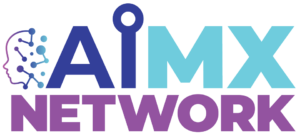Uncomfortable Truths About AI Adoption

Uncomfortable Truths About AI Adoption
Artificial Intelligence (AI) has been heralded as a transformative force in the business world, promising increased efficiency, cost savings, and innovative solutions. However, the journey to AI adoption is fraught with challenges and uncomfortable truths that many organizations may not be prepared for. This article delves into the realities of AI adoption, highlighting the key issues that businesses face and offering insights on how to navigate them.
Catch the full discussion on this topic in the latest episode of The AIMX Podcast.
Misconceptions About AI Capabilities
One of the most significant misconceptions about AI is that it can solve all problems and replace human workers entirely. This belief often leads business owners to view AI as a cheap alternative to human labour, expecting it to handle tasks without considering the human elements that are irreplaceable. AI tools, while powerful, cannot replicate the experience, network, and context that human employees bring to the table. This misconception can lead to costly mistakes and a loss of valuable human resources.
The Importance of Strategic Alignment
For AI to be effective, it must be aligned with the company's overall business strategy. This involves understanding the company's revenue model, consumer model, and operational processes. Without this alignment, AI initiatives are likely to fail. Companies need to plan carefully and ensure that AI solutions are integrated into their business strategy in a way that supports their long-term goals.
The Role of Proof of Concept
While proof of concept (POC) projects are essential for testing AI solutions, they are useless without a clear path to scale. Companies must ensure that they have the budget and plan to support the full-scale implementation of AI technologies. This includes considering the long-term costs of maintaining AI solutions and the skills and knowledge required to do so.
The Human Factor
AI adoption is not just about technology; it's also about people. Employees may resist AI solutions due to fear of job loss or a lack of understanding of AI. Companies need to invest in educating their employees about AI and its benefits. This includes addressing concerns about job security and providing training to help employees understand and work with AI technologies.
The Reality of Vendor Promises
Vendors often sell AI solutions with promises of transformative results, creating a sense of urgency and fear of missing out (FOMO) among business owners. However, these promises can be misleading. Business owners need to be critical of vendor claims and ensure that they understand the true capabilities and limitations of AI solutions. This may involve seeking advice from trusted consultants who can provide an unbiased assessment of AI technologies.
Data Management and Security
As companies adopt AI, they must also consider the implications for data management and security. AI solutions often require access to large amounts of data, which can pose risks if not managed properly. Companies need to implement robust data governance practices to prevent data leakage and ensure that sensitive information is protected.
Conclusion
AI adoption offers significant potential benefits, but it also comes with challenges that companies must be prepared to address. By understanding the realities of AI adoption and taking a strategic, people-centred approach, businesses can navigate these challenges and harness the power of AI to drive innovation and growth. The key is to align AI initiatives with business strategy, invest in employee education, critically assess vendor claims, and implement strong data management practices. With these steps, companies can turn the uncomfortable truths of AI adoption into opportunities for success.
Organised by

Powered by


